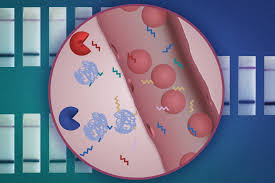
Transformer-Based AI Models Outperform Experts in Ovarian Cancer Diagnosis
Transformer-based neural network models have emerged as a groundbreaking tool in diagnosing ovarian cancer, surpassing the performance of both expert and nonexpert examiners, according to research published in Nature Medicine on January 2.
The study, led by Filip Christiansen from the Karolinska Institutet in Stockholm, highlights the transformative potential of artificial intelligence (AI) in medical diagnostics. Researchers developed and validated the models using an extensive dataset of 17,119 ultrasound images from 3,652 patients across 20 centers spanning eight countries. Employing a leave-one-out cross-validation approach, the model was trained with data from all but one center to ensure its robustness and generalizability.
The AI models demonstrated superior diagnostic performance across various metrics, including F1 score, sensitivity, specificity, accuracy, Cohen's kappa, Matthew’s correlation coefficient, diagnostic odds ratio, and Youden's J statistic. These metrics underscore the models’ capability to consistently outperform traditional diagnostic practices, regardless of variations in ultrasound systems, patient demographics, or histological diagnoses.
In a retrospective triage simulation, AI-driven diagnostic support reduced referrals to specialists by an impressive 63 percent, offering a promising solution for streamlining healthcare workflows. The study authors emphasized the efficiency and accuracy of these models, noting that they outperformed human examiners on every evaluated metric.
"Our study demonstrates the potential of AI models in improving the accuracy and efficiency of ovarian cancer diagnosis," the researchers wrote.
While the findings represent a significant leap forward in medical AI applications, the study also acknowledges potential conflicts of interest. Several authors disclosed affiliations with Intelligyn, a medical technology company, and some have pending patent applications related to this technology.
This breakthrough not only underscores the power of AI in advancing diagnostic accuracy but also highlights its potential to alleviate the burden on healthcare systems by reducing reliance on specialist consultations. With robust validation across diverse datasets and clinical settings, these transformer-based models pave the way for a new era in ovarian cancer diagnosis and beyond.